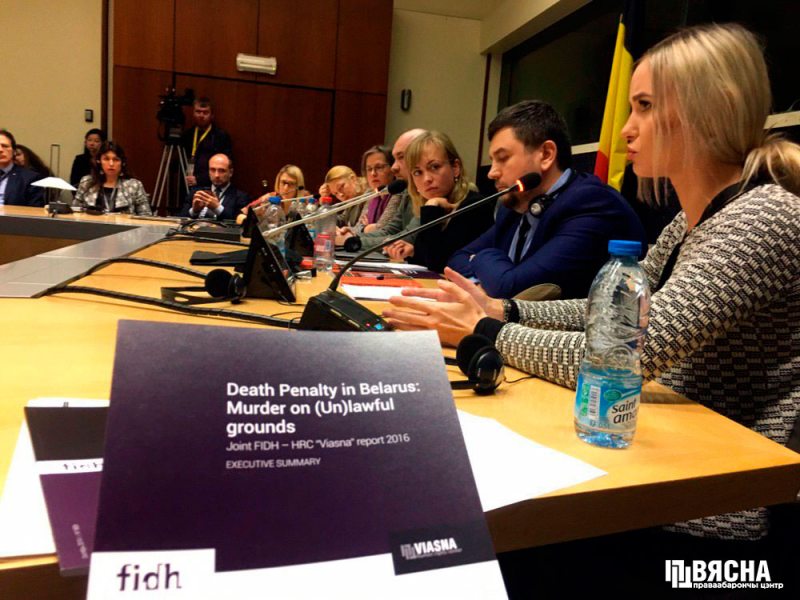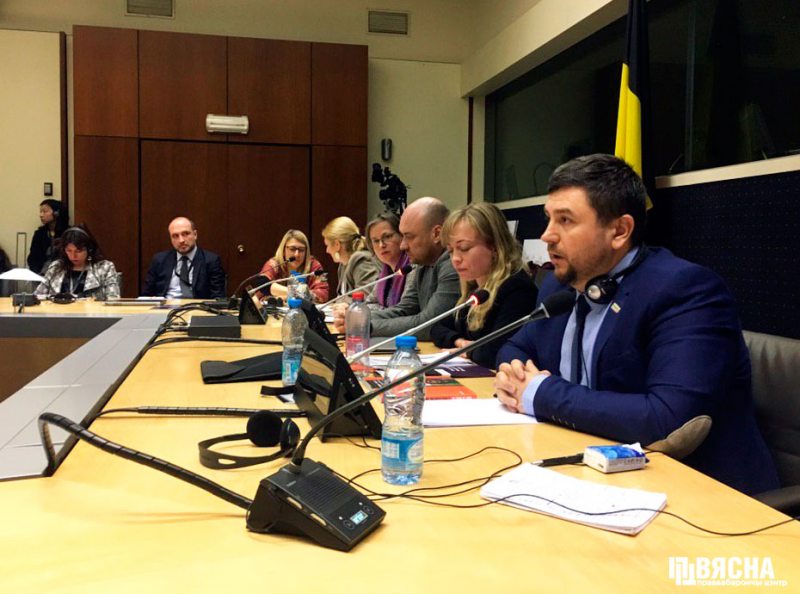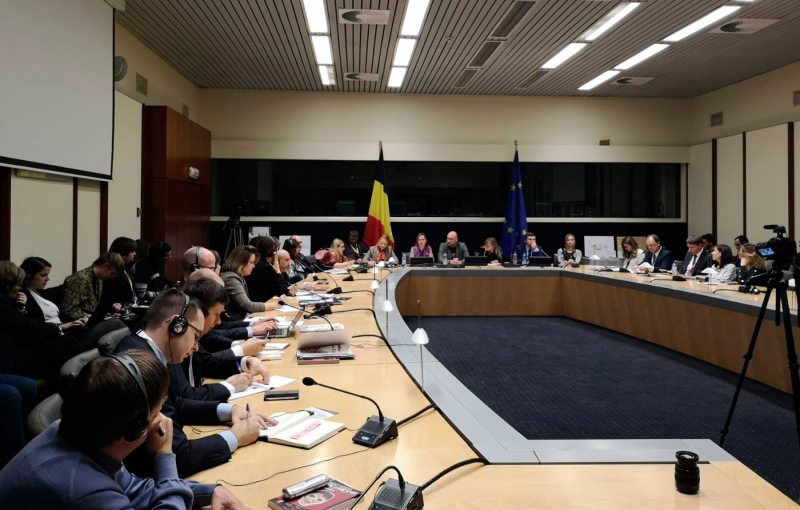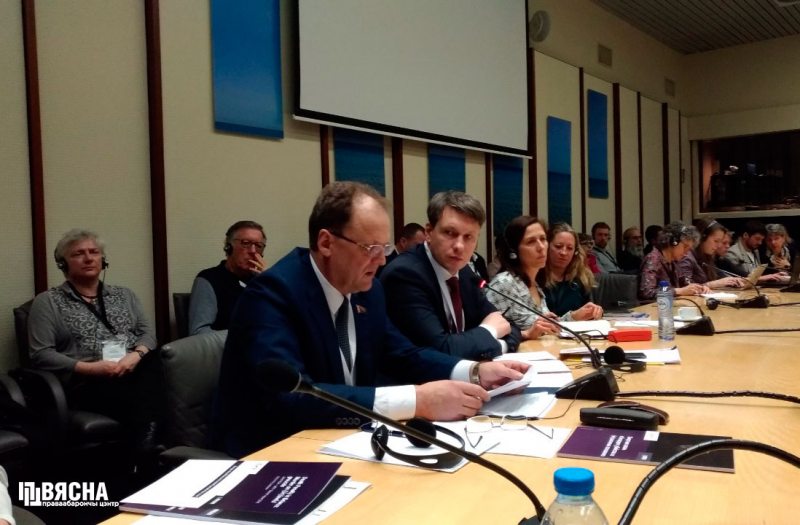Brussels: side-event "Why death penalty continues to be applied in Belarus?"
-

- Belarusian side event at World Congress against the Death Penalty
From February 26 to March 1 Brussels hosted the World Congress Against the Death Penalty. This world’s leading abolitionist event brought together politicians, activists, lawyers, researchers, etc. who are involved in the cause of abolition of the death penalty.
In cooperation with ECPM, FIDH, Council of Europe, activists from the Human Rights Center Viasna held a side event "Why death penalty continues to be applied in Belarus?"
Among the panelists were: Valiantsin Stefanovich and Andrej Paluda, representatives of the Human Rights Center Viasna, Anais Marin, UN Special rapporteur on the situation with human rights in Belarus, Tatiana Termacic, head of Coordination and International Cooperation Division at Directorate General of Human Rights and Rule of Law of Council of Europe, Liubou Kavaliova and Aliaksandra Yakavitskaja, relatives of executed prisoners in Belarus, as well as the representatives of the official delegation - Aleh Krauchanka, deputy minister of foreign affairs of Belarus and Andrej Navumovich, chairman or Standing Committee on Human Rights, National Relations and Mass Media.
In his speech, Valiantsin Stefanovich explained how the death penalty functioned at the moment in Belarus according to the procedures and legislation. The human rights activist stressed such legal problems as the imposition of the death penalty by the Supreme Court in the first instance when the convicts have no opportunity to appeal the decision.
"As a result, death sentences have often been carried out very quickly, within two months after imposition, as it was the case with Uladzislau Kavaliou and Dzmitry Kanavalau," said Valiantsin Stefanovich.
He drew the attention of the panel to the problem of disregard by Belarus of the UN mechanisms - failure to comply with the decisions of the UN Human Rights Committee and special procedures. The HRC has already issued seven decisions on admitting the violation of the right to life by Belarus.
Since there are no ethnic or religious conflicts, no rampant crime in Belarus, the human rights defenders believe that a moratorium on the death penalty and its abolition entirely depends on the political will of the government. Human rights activists oppose the referendum on the abolition of the death penalty.
In his address, head of the Parliamentary Working Group on Death Penalty Issues Andrej Navumovich stated that once the number of people supporting the death penalty fell below 50%, it would serve as a ground for making appropriate decisions.
The representatives of international organizations noticed that public opinion is not static, and they did not know of examples when the death penalty had been abolished via referenda.









